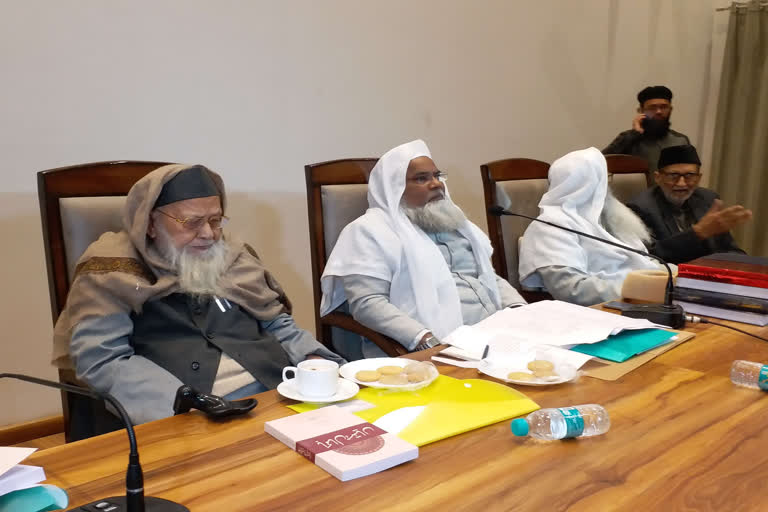Lucknow: The All India Muslim Personal Law Board, the largest organization of Muslims in India, has said it will seek the support of political parties to contest the proposed imposition of the Uniform Civil Code by the BJP. The AIMPLB said that it is holding talks with the political parties to chalk out a strategy in this regard.
The decision was taken at a special meeting held by the AIMPLB in Uttar Pradesh capital Lucknow on Sunday. After this meeting which lasted for several hours at Nadwa College, it was decided to hold talks with political parties and people of other religions on this matter. The board's general secretary Maulana Khalid Saifullah Rahmani made it clear that first an attempt would be made to resolve the issue through dialogue.
If things don't work out, other ways will also be adopted, he said. In the meeting, General Secretary Maulana Khalid Saifullah said that Uniform Civil Code is not the issue of Muslims only. “On this, we will hold talks with people belonging to various minorities of the country,” he added. The General Secretary said that many points were discussed in detail in the meeting.
Also read: UCC not feasible in India, says AIMPLB Gen Sec Maulana Khalid Saifullah Rahmani
Apart from Uniform Civil Code, cases related to Muslim Personal Law going on in various courts of the country were also discussed. The General Secretary said that it is felt that “poison of hatred is being spread in the country”. “If brotherhood ends, the country will be at a great loss. Through the meeting, an appeal is made to the government, religious leaders, philanthropists, lawmakers and political leaders to help extinguish this fire of hatred,” he said.
The members said that in the constitution of the country, every citizen has been given the freedom to practice his religion. Rahmani said it is the responsibility of the government to uphold the principles. He further impressed upon the need to uphold law. “Therefore it is important not to take the law into your hands.
Unfortunately, houses are being demolished without fully following the law. Those exercising constitutional rights are arrested. Without proving the crime, people are put in jail. The foundation of the constitution is on equality, justice and freedom. It is the responsibility of the government as well as the court to uphold these principles,” he said.
The AIMPLB also urged the courts to take stock of the “injustice done to vulnerable citizens and minorities”.



